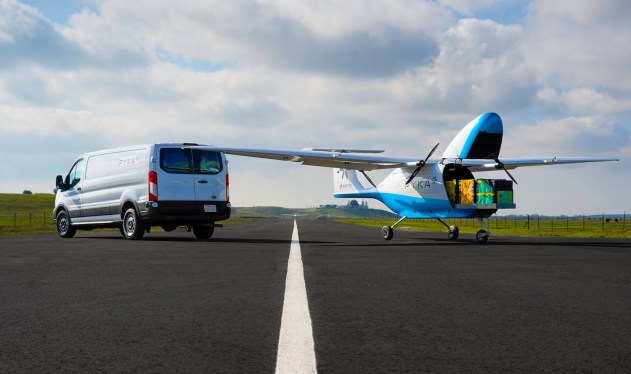Pyka’s Autonomous Electric Aviation Takes Flight with Pentagon Interest
A New Chapter for Pyka and the Future of Aviation
In a significant development for the autonomous electric aviation industry, Pyka has attracted the attention of the Pentagon, with a lucrative $40 million B round led by Obvious Ventures. This new investment is set to propel Pyka’s crop-dusting and cargo plane lines into new heights, while also opening up exciting possibilities for defense logistics.
From Crop-Dusting to Cargo Planes: Pyka’s Journey
Pyka was founded in 2019 with a focus on revolutionizing the crop-dusting industry through its lightweight, compact electric Pelican aircraft. These autonomous planes were designed to efficiently spray crops over large areas, relieving the dangers and tediousness of human pilots or remote control operators.
Initially, the company explored passenger plane designs but eventually shifted its attention to developing a cargo variant of the Pelican. This decision was driven by the need for a more practical solution in the short term. Co-founder and CEO Michael Norcia shared that their main goal was to address inter-island commerce, an industry traditionally served by slow boats and old planes.
"We went from render to first flight in about 10 months, which was exciting. It’s very fast," said Norcia. "We’re making progress!"
The Unexpected Attention from the Defense Department
The cargo variant of the Pelican aircraft unexpectedly attracted the attention of a customer that Pyka hadn’t considered: the Defense Department. This shift towards defense logistics was not an easy decision for the company, but they saw the potential benefits.
"When we initially created the product, our focus was purely commercial use cases. We pretty quickly realized there was a lot of interest and need for the product in the defense world," Norcia explained. "It kind of caught us by surprise."
The company is working with aerospace veteran Sierra Nevada to adapt the Pelican design for military purposes, making changes largely electronic in nature. This includes creating the mil-spec version known as the "Pelican UAS" or Unmanned Aerial System.
The Future of Aviation and Transportation
Pyka’s journey highlights the rapid evolution of autonomous electric aviation technology. Despite facing challenges, the company remains committed to its original vision of making passenger-carrying vehicles a reality.
"That’s still the North Star for us; we want to have success in the industrial use cases, then use that data advantage and cash flow to make a passenger-carrying vehicle," Norcia emphasized. "That’s still the legacy we’d like Pyka to have."
The $40 million B round, led by Obvious Ventures, is expected to further accelerate this vision.
Industry Implications
This development signals significant potential for autonomous electric aviation in both civilian and military contexts. It also underscores the growing interest in sustainable transportation solutions that prioritize efficiency, cost-effectiveness, and environmental responsibility.
Key Players Involved
- Pyka: The autonomous electric aviation startup behind the Pelican aircraft.
- Obvious Ventures: A leading investor in the B round with a focus on sustainable technology.
- Sierra Nevada: Aerospace veteran contributing to adapting the Pelican design for military use.
Conclusion
Pyka’s success is not just about innovation but also about vision and perseverance. As the company continues its journey, it stands as an exemplar of what can be achieved in the space of autonomous electric aviation. With the Pentagon’s interest and the support from key investors, Pyka is poised to make a significant impact on both civilian transportation and defense logistics.
Related Topics:
- Electric Aircraft
- Autonomous Aviation
- Sustainable Transportation Solutions
- Defense Logistics
- Obvious Ventures
- Pyka
- Sierra Nevada
About the Author
Devin Coldewey is a Seattle-based writer and photographer. He first wrote for TechCrunch in 2007. His personal website is coldewey.cc.
Subscribe to Stay Updated:
Stay at the forefront of technological advancements by subscribing to our newsletters, including TechCrunch Daily News, TechCrunch AI, TechCrunch Space, Startups Weekly, and more.

